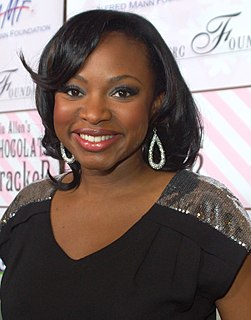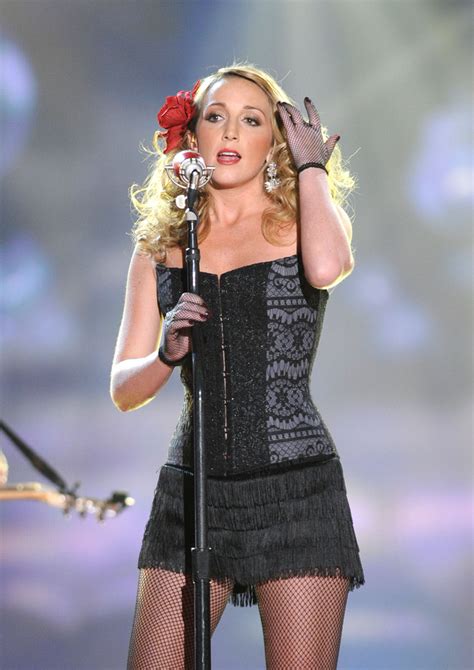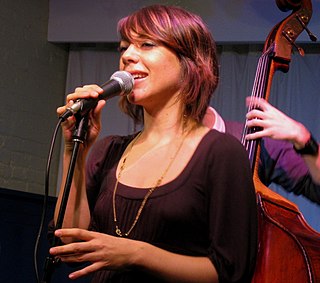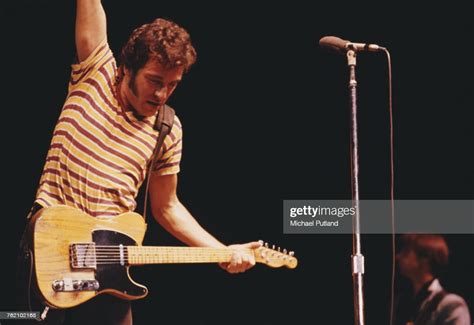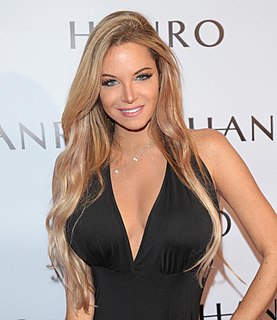A Quote by Alan Cumming
Usually, there's a story I've told that leads up to why I'm singing the song. The whole concept of the show was about being authentic and connecting with these songs. The best way to do that was in a room with an audience and for people to listen to that.
Related Quotes
Often for me, if I hear a song I know, it clicks for me and I hear it in a different way and I think, "I could sing that song. I've got something to say about that song. Wanting to connect with an audience and wanting them to rethink songs; it is actually important to do songs they're familiar with. Also, I love those songs. In a way, I think I've changed people's perceptions of what a cabaret show like this could be.
An audience will let you know if a song communicates. If you see them kind of falling asleep during the song, or if they clap at the end of a song, then they're telling you something about the song. But you can have a good song that doesn't communicate. Perhaps that isn't a song that you can sing to people; perhaps that's a song that you sing to yourself. And some songs are maybe for a small audience, and some songs are for a wide audience. But the audience will let you know pretty quickly.
When you write a show, you just never know if it will have a future or if the show will end up ever having a production, but, that doesn't mean that the songs - the best of the best songs - can't be pulled out and put on a CD. And, if the shows that they come from end up happening, then people will regard this as like a quirky little concept recording. And, if the shows don't end up happening, at least the songs will live on in some capacity.
You want to have a feeling when you sing that you just love singing; you love the feeling of singing, and you love this feeling of this voice coming out of your body into this world. It's about really getting that most beautiful, pure, centered tone, thinking about the story of each song and the lyrics, and connecting your own life to that story.

